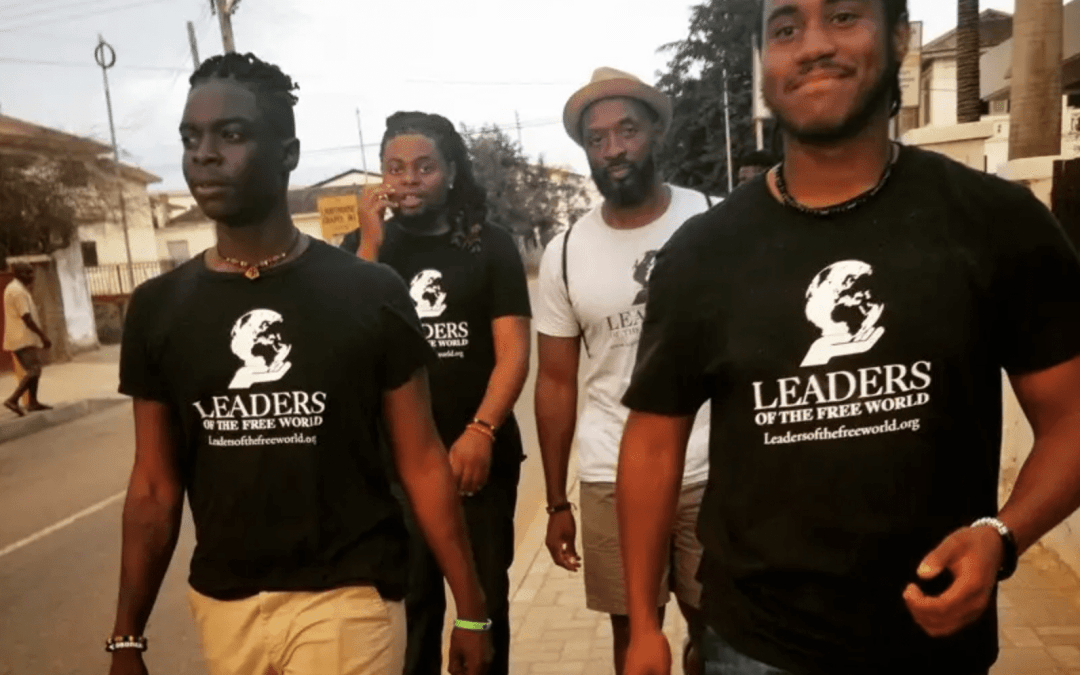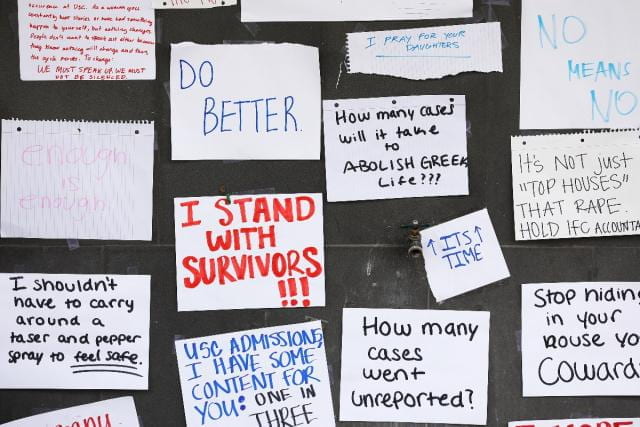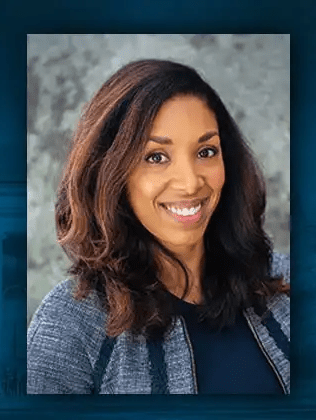
A Place for Peace
Photos by Kathy F. Atkinson December 17, 2021
New Interfaith Meditation and Prayer Room invites students, faculty and staff to pray, meditate and reflect
The University of Delaware’s Trabant University Center is typically a hive of activity, buzzing with students grabbing lunch or coffee or attending an event or movie.
But it will now also offer a place for prayer, meditation and reflection.
On Wednesday, Dec. 8, students and staff celebrated the opening of The Interfaith Meditation and Prayer Room, located in Trabant room 223.
The new space means so much to students like Vivek Raman, who lives in an interfaith home: he is Hindu, and his wife is Muslim. He said it helps spread an understanding and oneness across faiths. “Faith should not be the measure or an association to evaluate a fellow human’s behavior,” said Raman, who is pursuing his master’s degree in business analytics and information management.
The space was secured with the support of the Division of Student Life and the Office of Institutional Equity, Diversity and Inclusion and University Student Centers. There is an existing spot, The Reflection Space in Morris Library room 233, but the new location had been on students’ wish lists for years.
Fatimah Conley, vice president of institutional equity and chief diversity officer, shared that she grew up simultaneously practicing Christianity and Islam, and studying Judaisim.
“My family practiced many different faiths, and my father ensured that I understood the similarities in religious and worship practices, rather than focusing on where they diverged,” she said. “I do applaud the students for coming together and helping to send the message that whatever belief you hold, there’s a space for everyone.”
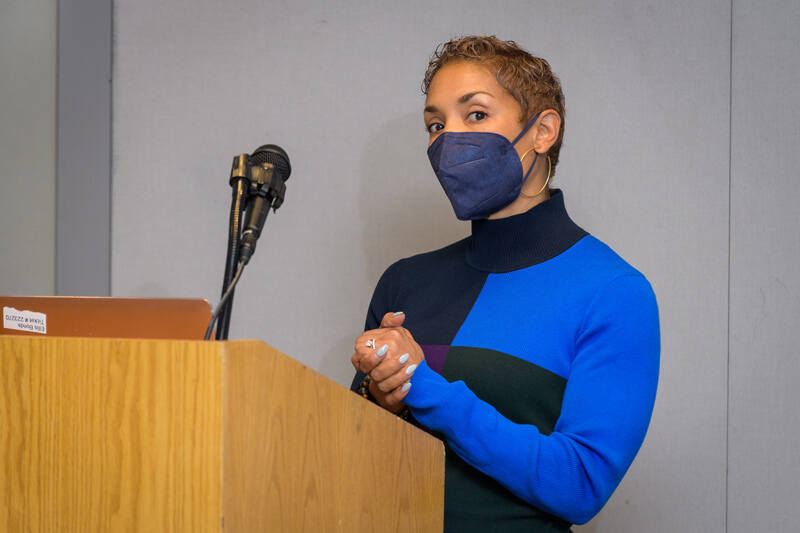
Among the students who led the charge to make the interfaith space a reality were Safiyah Mansoori, a member of the graduate Muslim Student Association, and Ioannis Chremos, vice president of student affairs of the Graduate Student Government (GSG).
Mansoori, who is pursuing her doctorate in medical sciences, remembers having no such space when she was an undergraduate at UD.
“This was a shared reality for many Muslim students and students of other faiths on campus who desired a quiet praying area,” she said.
In 2016, when UD created a reflection room in Morris Library, Mansoori and her friends were elated.
“This new interfaith space clearly shows me that big positive changes can be realized on our campus when students work together,” Mansoori said.
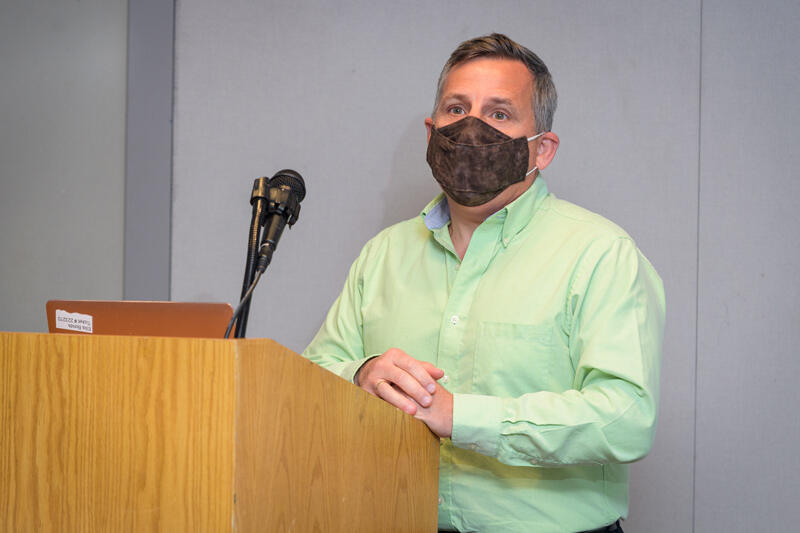
Chremos said he became involved because he wanted to follow through on a campaign promise he made when running for his current position with GSG: “to work diligently … towards a more inclusive, green campus that works for all.”
“That’s why I felt a strong duty to advocate for interfaith spaces, as it impacts so many of my fellow students, classmates and colleagues,” said Chremos, who is currently pursuing his doctorate in mechanical engineering. “All members of the GSG are seeking to create a graduate experience inclusive of all the diverse voices of a 21st century community. Our goal is to lead and build a thriving community of support, inclusion and interconnectedness for students of all backgrounds and experiences from all around the globe.”
In addition to providing a connection to faith, Stephanie Chang, director of student diversity and inclusion, said she hopes the new center will encourage students, faculty and staff to take a few moments to take a mental breather.
“The campus environment and our personal lives are busy, and it is exciting to see that we are adding to spaces on campus where we can take a moment to slow down and recenter ourselves,” Chang said.
Kim Zitzner, the liaison to the Division of Student Life for Religious and Spiritual Life, was instrumental in the process. The former long-time director of Catholic Campus Ministry drew from her massive network of campus religious leaders to help make the center a reality.
“Creating space to meet the spiritual and holistic needs of our community speaks volumes; it promotes equity as we move one step closer toward answering the needs of a vast population,” Zitzner said. “My hope is that this moves us closer toward a harmonious, all-inclusive diverse campus that meets the needs of all of its members.”
The room is featured on a new website created to help identify interfaith related resources on campus.


